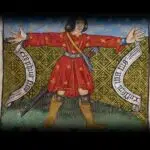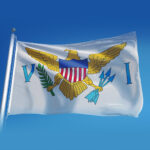Anesthesia Tech Day is celebrated on March 31 every year. The day honors technologists and technicians for their contributions toward anesthesiology and healthcare. Anesthesiologists are integral members of the global medical field, and their efforts are unparalleled. It’s a day of education for aspiring medical and healthcare professionals, a celebration of scientific breakthroughs, and fundraising for future research. Learn about the history of anesthesia, including the discoveries that made surgical treatment more comfortable for patients.
History of Anesthesia Tech Day
The origin of anesthesia dates back to ancient times when Babylons, Greeks, and Chinese used natural herbs to be taken orally. Later in the 1200s, Italian physician and bishop Theodoric of Lucca used sponges soaked in mandrake plant extract and opium to relieve surgical pain. The breakthrough of actual medical anesthesia that we know today didn’t come immediately. Throughout the centuries, patients who underwent surgery had to tolerate the pain or rely on opium, alcohol, or even a bullet to bite to relieve the agony. When the Civil War came, and soldiers had to undergo surgeries and amputations regularly, it was clear that developing more advanced anesthesia had to be a priority for medical professionals.
The first surgical procedure that used anesthesia was in 1846. Dentist William T.G. Morton of Boston Massachusetts used sulfuric ether to anesthetize a patient for a vascular tumor removal surgery. Morton called this discovery ‘Letheon’ after the Lethe River of Greek mythology which was described as a powerful river that helps remove painful memories. He gained financial success after this discovery.
The vast evolution took place in attempts to improve the performance of anesthesia in the medical field. This includes the discovery of laughing gas in 1844 and the successful use of cocaine as a spinal anesthetic in 1898. In 1902, Dr. Mathias J. Seifert of Chicago patented the terms ‘anesthesiology’ and ‘anesthesiology.’ Today, modern anesthesia is a standard tool for medicine and surgeries and tailored according to a patient’s needs. From dentistry, and cosmetics, to general medicine, anesthesia has come a long way.
Anesthesia Tech Day timeline
Boston Dentist William T.G. Morton uses sulfuric to anesthetize a man for surgery.
Scottish obstetrician James Y. Simpson gives chloroform to a woman to ease labor pain.
Dr. Mathias J. Seifert of Chicago coins the terms ‘anesthesiology’ and ‘anesthesiologist.’
The first inhaling anesthesia in the medical field is known as ‘desflurane.’
Anesthesia Tech Day FAQs
When was the first surgery?
The first surgery pre-dating anesthesia dates back to 6500 B.C. It’s called ‘trepanation.’
What is an anesthetic made of?
The common ingredients of general anesthetics include nitrous oxide and ether variants such as isoflurane, sevoflurane, and desflurane.
Who performed the first surgery in history?
Sushruta in 6th century B.C. He’s often called the father of Indian medicine and the father of plastic surgery.
Anesthesia Tech Day Activities
Attend fundraisers
Just like any other branch of science, the field of anesthesiology is under constant research, development, and advancement. Fundraising events help the anesthesiology field gather financial resources. Donate to this worthy cause.
Join seminars and symposiums
Dissemination of information is vital in the field of science. To be constantly updated with the latest milestones and medical breakthroughs attend anesthesiology seminars and symposiums.
Attend ASATT events
The American Society of Anesthesia Technologists and Technicians conducts an annual Anesthesia Tech Week where they celebrate everyone in the field of anesthesia. Educational events have fun activities like a poster-making design contest.
5 Interesting Facts About Anesthesia
Anesthesia may not be effective for smokers
According to preliminary research, smokers need extra anesthesia before any type of surgery.
Three types of anesthesia
The three types of anesthesia are local, regional, and general anesthesia.
It’s possible to wake up during surgery
It’s an extremely rare occurrence, but it’s been recorded that one in every 1,000 patients wakes up during surgery.
Aromatherapy helps post-surgery
Plant extracts and essential oils help aid nausea and dizziness, which are side effects of anesthesia.
Anesthesia may affect your memory
The University of Toronto’s Faculty of Medicine found that anesthesia causes memory loss.
Why We Love Anesthesia Tech Day
It encourages a career in anesthesiology
Anesthesia Tech Day is educational to many people, particularly to aspiring medical professionals. It helps them narrow down their choices after their general education and would allow them to realize that being an anesthesiologist is a career option they can take.
It funds scientific research
Anesthesia wouldn’t be the advanced and staple medical tool we know today without centuries of research; scientists can still further advance its features with enough funding for research and development.
It celebrates technologists and technicians
Technologists and technicians are often unsung in honoring medical professionals. This holiday gives them the spotlight for their contributions and hard work.
Anesthesia Tech Day dates
| Year | Date | Day |
|---|---|---|
| 2026 | March 31 | Tuesday |
| 2027 | March 31 | Wednesday |
| 2028 | March 31 | Friday |
| 2029 | March 31 | Saturday |
| 2030 | March 31 | Sunday |






















